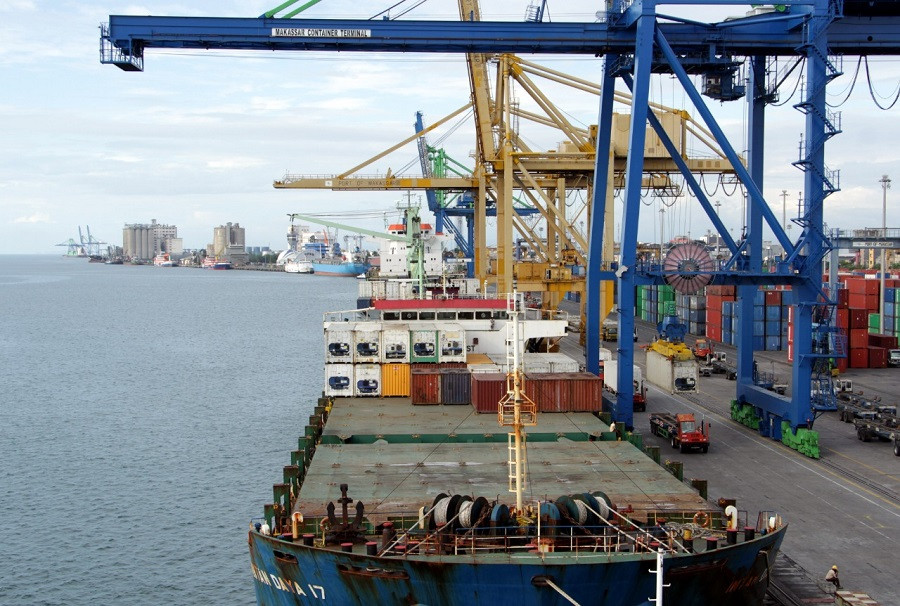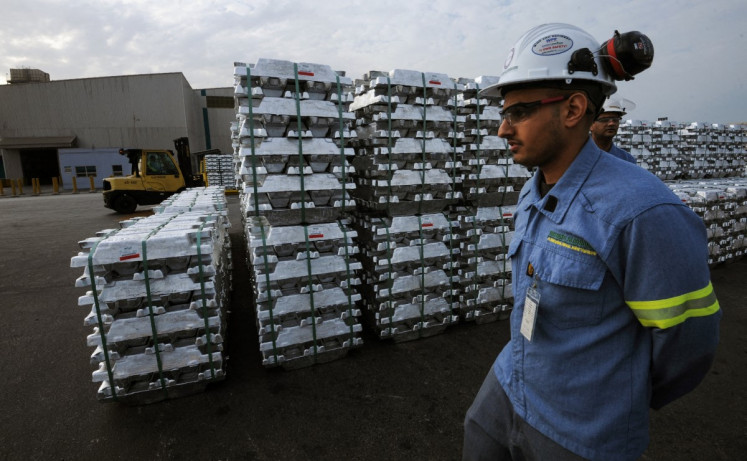Popular Reads
Top Results
Can't find what you're looking for?
View all search resultsPopular Reads
Top Results
Can't find what you're looking for?
View all search resultsDownside risks to economy
The World Bank says structural reforms should be accelerated to bolster domestic and foreign investments to offset the narrowing macroeconomic policy space and stimulate the economy.
Change text size
Gift Premium Articles
to Anyone
T
he World Bank expects the Indonesian economy to grow by 3.7 percent in 2021, up from a contraction of 2.1 percent in 2020, and to further rebound by 5.2 percent in 2022 but with several downside risks that could knock the fragile recovery off course.
The economic-growth projection, contained in the Indonesia Economic Prospects report launched by the World Bank on Thursday, assumes that Indonesia will avoid another severe COVID-19 spike, achieve 70 percent vaccine coverage in 2022 in most provinces, maintain accommodative monetary and fiscal policies and increase the pace of structural reforms.
However, risks and uncertainty remain very high, especially after the confirmed discovery of the new COVID-19 variant Omicron in Jakarta last week. In fact, extreme uncertainty about the economy seems to be the only certainty in the near term.
The primary risk certainly is related to the vaccine rollout and new variants. The pandemic could last longer than expected because of the emergence of more transmissible variants. This could increase the incidence and frequency of flare-ups.
Global financial conditions could tighten faster and more strongly than anticipated, especially in the United States. Although Indonesia is better prepared now than that in 2013 and its foreign exchange reserves of US$150 billion as of November are enough for over eight months of imports and interest payments, large capital outflows could still set off massive unloading of government bonds by foreign investors and steep rupiah depreciation.
The ongoing low credit growth could slow down the recovery, and the mounting debt problems in the business sector could set off a wave of corporate defaults, adversely affecting the banking system.
The World Bank says structural reforms should be accelerated to bolster domestic and foreign investment to offset the narrowing macroeconomic policy space to stimulate the economy. Most of the reforms designed to improve economic competitiveness through an efficient business licensing and logistics system and conducive labor market rules are stipulated in the Job Creation Law.
The problem, however, is that the Constitutional Court ruled in late November that the law is unconstitutional, though it remains in effect for the next two years, during which the government should make amendments to the law. The fate of the massive reform then will heavily depend on how fast the government and the House of Representatives can fix the unconstitutionality of the law. Two years is a short period for revising an omnibus law that materially and substantially amends more than 70 laws.
This confusing court decision only confirms investors’ worst fear that regulatory and law uncertainty, which has long been a main barrier to investment, will remain entrenched for some time.
Fortunate, though, the recently enacted tax harmonization law has been commended to be highly effective for raising the tax collection rate and broadening the tax base and the fiscal space for the government to reduce the fiscal deficit but still maintain stimulus for the economy.
But the ultimate key is still the pandemic. If the COVID-19 pandemic can be better managed next year, private spending and contact-intensive services sectors will recover more strongly, as wider vaccination will strengthen consumer confidence to release the pent-up market demand of the past two years.











